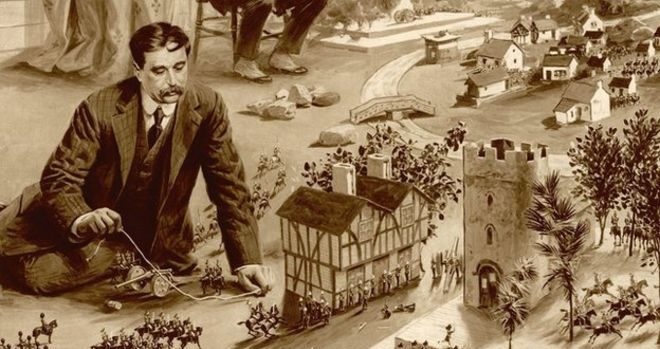H.G. Wells hoped the people of Earth would someday live in a single world state overseen by a benign central government–if they weren’t first torn apart by yawning wealth inequality abetted by technology. He was correctly sure you couldn’t decouple the health of a society with the machines it depended on, which could have an outsize impact on economics.
In a smart The Conversation essay, Simon John James advises that the author’s social predictions have equal importance to his scientific ones. The opening:
No writer is more renowned for his ability to foresee the future than HG Wells. His writing can be seen to have predicted the aeroplane, the tank, space travel, the atomic bomb, satellite television and the worldwide web. His fantastic fiction imagined time travel, alien invasion, flights to the moon and human beings with the powers of gods.
This is what he is generally remembered for today, 150 years after his birth. Yet for all these successes, the futuristic prophecy on which Wells’s heart was most set – the establishment of a world state – remains unfulfilled. He envisioned a Utopian government which would ensure that every individual would be as well educated as possible (especially in science), have work which would satisfy them, and the freedom to enjoy their private life.
His interests in society and technology were closely entwined. Wells’s political vision was closely associated with the fantastic transport technologies that Wells is famous for: from the time machine to the Martian tripods to the moving walkways and aircraft in When the Sleeper Wakes. In Anticipations (1900), Wells prophesied the “abolition of distance” by real-life technologies such as the railway. He stressed that since the inhabitants of different nations could now travel towards each other more quickly and easily, it was all the more important for them to do so peacefully rather than belligerently.•
Tags: H.G. Wells, Simon John James

